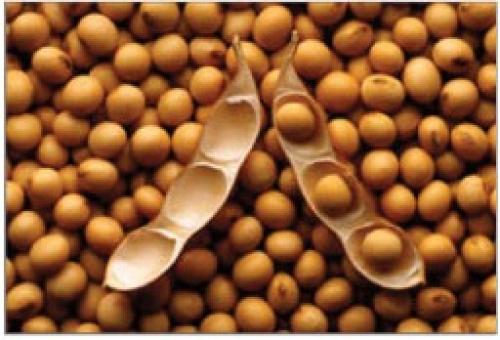

The nutritional properties of soybeans
Soybeans contain 8% water, 5% inorganic matter, 15-25% glucose, 15-20% fat, 35-45% protein and several essential amino acids (soleucin, lysin, metionin, pheny lalanin, tryptophan, valin) along with many vitamins, minerals (Ca, Fe, Mg, P, K, Na, S, vitamins A, B1, B2, D, E, F), enzymes, waxes, oils and cellulose fibers.
In recognition of such high protein levels, soybeans are often referred to as ‘boneless meat’ in many Asian countries. As such, they are an excellent low-fat and low-cholesterol replacement for animal meats. Soybeans have more protein per serving than animal meats, more calcium than cows’ milk, and more lecithin then eggs. Several amino acids which the body cannot produce on its own are found in soybeans.
The nutritional properties of soymilk share much in common with those of cows’ milk. The per serving amount of protein in soymilk is almost equivalent to that in cows’ milk, although with less calcium. Soybeans have the advantage of being lactose-free, and soymilk can serve as a replacement for cows’ milk for those that suffer from lactose intolerance. Soymilk also contains less saturated fats than cows’ milk, and as such has benefits for cardiovascular health.
While any food source’s true nutritional value can perhaps best be ascertained by observing how that source has been favored by human populations over time, the scientific community is nevertheless continuing to research soymilk’s particular properties and advantages in the laboratory.
The ratio of protits and lipits found in soybeans is far greater than in animal meats, especially for proteins. Many people find animal proteins hard to digest, leaving behind harmful residues, causing degradation, and fueling chronic diseases. Soy proteins on the other hand are highly beneficial to health, free from disease causing residues and able to combine with proteins from grain sources to, under certain conditions, mimic the effects of proteins found in animal meats, eggs, fish and other sources. In this way, soy protein can be seen as a replacement for animal protein without the disadvantages, and with added abilities to combine with other proteins and assist in the delivery of nutrients to various parts of the body.
In addition, fat are very low in saturated fat and can be easily absorbed into the bloodstream, acting in defense against obesity and cholesterol. (Oils are 60% unsaturated and only 15% saturated). They also contain linolenic and linolic acids, two acids with positive effects on circulation and cancer fighting properties. Soy fiber has the effect of flushing out the digestive tract and preventing stomach, intestinal and bowel cancers.
Several other compounds found in soybeans have medicinal properties, leading the scientific community to undertake careful research and declare benefits regarding cardiovascular health, muscle readiness, weight loss, and the general maintenance of a slim and healthy body.
Finally, soybeans are rich in vitamins A, E, K, as well as in potassium, iron, zinc and phosphorus, helping the body meet its nutritional needs.

